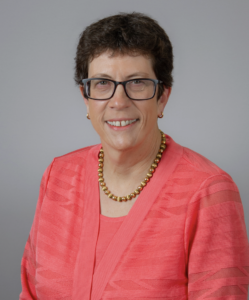By 2030, 71 million Americans will be 65 and older. Along with the joys of aging, many older adults experience complex and chronic health problems that may result in disability. It is not surprising that, as a group, older adults need more health care than their younger counterparts.
As a 2021-22 Health Aging Policy Fellow, Laura Mosqueda, MD, professor of family medicine and geriatrics at the Keck School of Medicine of USC, will help the nation’s policymakers improve the provision of health care to America’s rapidly aging population. Mosqueda is one of 13 scholars and practitioners from across a range of disciplines selected for the fellowship, which will start Oct. 1.
The fellowship will help Mosqueda develop new skills, new connections, and see “the nitty gritty” of how politicians and policy makers do their work.
“Building on my experience in patient care, research, education, and administration, I’m interested in figuring out how to translate what I’ve learned in these arenas to improve policies and laws,” she said. “I’d like to contribute to making our society a better one in which to grow old.”
This year’s fellows were selected through a competitive pool based on their commitment to health and aging issues, leadership potential, and interest in impacting policy. The program has a broad interdisciplinary focus, and fellows have included physicians, nurses, psychologists, epidemiologists, healthcare professionals and administrators, economists, and lawyers. The fellows span career stages, from new PhDs to senior professors and community leaders.
Two types of fellowships are offered through the program: a residential track based at a government agency or policy organization in Washington, D.C., or at a state agency and a non-residential track that includes brief placements at relevant organizations throughout the year. Fellows’ project may be focused at a global, federal, state or community level.
Mosqueda, who also serves as the director of the National Center on Elder Abuse, will complete a non-residential fellowship project on improving care in nursing homes, exploring issues such as payment mechanisms, profit incentives, workforce development, quality of life, and oversight.
“This may be a moment when the public is sufficiently outraged by the current structure and mechanisms that there may be support for significant reform,” she said. “Most notably there needs to be a national discussion about the importance of all people living their lives in a dignified and loving environment that respects their personhood.”
